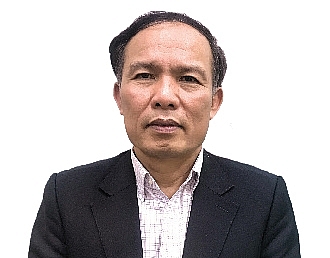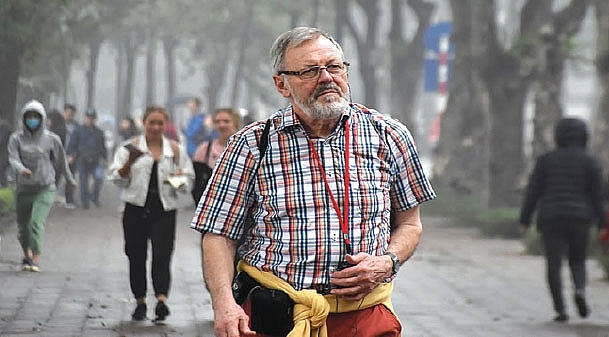Bolstering Vietnam’s tourism prospects
 |
| Vice chairman of the Vietnam National Administration of Tourism Ngo Hoai Chung |
Tourism is undoubtedly among the industries that have been hit the hardest. What do you plan to cope with the outbreak and its consequences?
In 2019, Vietnam welcomed 18 million international arrivals, contributing to a total tourism revenue of some $35 billion. Thus, we received an average of around $4 billion each month. COVID-19 is currently impacting every economic sector, particularly the tourism industry, which is estimated to see a $2 billion loss each month.
The challenges and damages caused by the epidemic urge the Vietnamese tourism industry to restructure the market and look for alternatives to the now limited arrivals from Chinese visitors. In addition to the traditional Northeast Asian market, we are paying more attention to India, which has recently become a very potential market and shares some cultural similarities with Vietnam. The Southeast Asian, European, and North American markets are also becoming more important.
However, the epidemic is also an opportunity for Vietnam’s tourism to focus on developing innovative products. In this regard, we are reviewing and improving the training of human resources in the sector, thereby bolstering the service quality of each business. We hope that by the time COVID-19 is controlled, we can be ready to welcome a new bloom of tourist arrivals to Vietnam.
Could you describe some specific actions to promote Vietnam’s tourism now and after the crisis?
The Vietnam National Administration of Tourism (VNAT) has proposed a complete visa exemption in 2020 for tourists travelling on all-inclusive packages to Vietnam. This policy could be followed by an expansion of time-limited, unilateral visa exemptions for citizens from a number of markets, such as Western Europe, Canada, Australia, New Zealand, and India, running alongside the current unilateral visa exemption policy applied for 24 countries.
In addition, since the current health crisis puts a huge weight on the shoulders of local businesses, we have proposed some financial relief for the government to authorise. As such, we suggested offering distinct credit packages, loans with preferential interest rates, debt restructuring, and rescheduling.
Moreover, we have been actively participating in international tourism fairs and launched a tourism promotion office in the UK. I believe that since the World Tourism Organization (UNWTO) has ranked Vietnam seventh among the world’s 20 fastest-growing travel destinations in 2019, we will remain an attractive, friendly, and safe destination for international visitors.
 |
How is the VNAT communicating with local firms about safety precautions and preparations for reviving the tourism sector?
During the financial crisis in 2008-2009, we launched a campaign encouraging Vietnamese to travel their country, which brought about positive domestic tourism results. The VNAT has drawn lessons from this campaign and applies these to the current period, with the desire to minimise damage and revive the market after the crisis.
We have ordered tourism businesses and localities to partake in combating the epidemic and prevent the virus from spreading further. As such, businesses are advised not to take any tourists to epidemic-stricken areas but instead only offer and execute tours to safe areas.
Companies are also suggested to lower service fees and stimulate the local tourism. Localities could reduce entrance fees or offer visits to historical and cultural sites free of charge at certain times. Furthermore, we advised localities to revise their budget revenues and join hands in attracting tourists in order to go through this gloomy period of Vietnam’s tourism industry.
We have also recommended transport enterprises and tour operators to consider reducing ticket prices. In case customers wish to change or have their tickets returned, there should be no additional fee. Instead, the firms should offer favourable solutions for customers to reschedule their trips. Currently, railways and aviation are doing this very well.
Businesses are also constrained to conduct disinfection and protect their labour force, as well as regularly reminding their guests to use face masks and wash their hands.
Finally, the VNAT has established four workgroups to survey and evaluate the epidemic combating and prevention measurements in key localities such as Quang Ninh, Lao Cai, Hanoi, Quang Nam, Danang, Ho Chi Minh City, and Phu Quoc.
 |
Which tourism products will be encouraged and prioritised in the near future?
Vietnam’s tourism industry is now focusing on comprehensively developing rural tourism as a product to attract more tourists. Many rural areas boast favourable natural conditions, stunning sceneries, and a distinct cultural identity, which are particularly suitable for eco-tourism.
In addition, Vietnam has preferential conditions to develop golf tourism, thereby attracting higher-paying visitors who may have longer and higher-quality stays. The VNAT has directed the Vietnam Tourism Association to establish the Vietnam Golf Tourism Association, and proposed to the government to initiate the planning of additional golf courses in Vietnam, aiming at efficiently exploiting golf as a tourism product. Large corporations in Vietnam, such as FLC, are building a series of golf courses to host major golf tournaments.
This April, the renowned Formula 1 race will also come to Hanoi, which is expected to not only extend the prestige of the city itself but also attract many international visitors to the country.
These, and many more, are new product lines that we are currently prioritising to diversify Vietnam’s tourism industry and reach new key markets. This plethora of new products will both secure the scale of Vietnam’s tourism industry and act as a solution to overcome the harsh consequences of the COVID-19 epidemic.
What the stars mean:
★ Poor ★ ★ Promising ★★★ Good ★★★★ Very good ★★★★★ Exceptional
 Tag:
Tag:
Themes: Safe and Sound Vietnam
Related Contents
Latest News
More News
- Manila becomes a new check-in destination for Vietnamese youth (December 11, 2025 | 18:07)
- Vietjet launches mega year-end ticket promotion (December 10, 2025 | 11:33)
- Dalat leads Vietnam’s 2025 search trends (December 09, 2025 | 13:44)
- Vietnam welcomes record wave of international visitors (December 09, 2025 | 13:43)
- Vietjet launches daily Manila flights to celebrate year-end festive peak season (December 05, 2025 | 13:47)
- The destinations powering Vietnam’s festive season travel demand (December 04, 2025 | 18:33)
- Vietnam named among the world’s most exciting winter destinations (December 04, 2025 | 15:10)
- Phu Tho emerges as northern Vietnam’s new tourism hub (December 01, 2025 | 17:00)
- Vietjet completes Airbus A320/A321 updates ahead of deadline (December 01, 2025 | 09:49)
- Vietjet resumes Con Dao flights from early December (November 28, 2025 | 15:24)





















 Mobile Version
Mobile Version